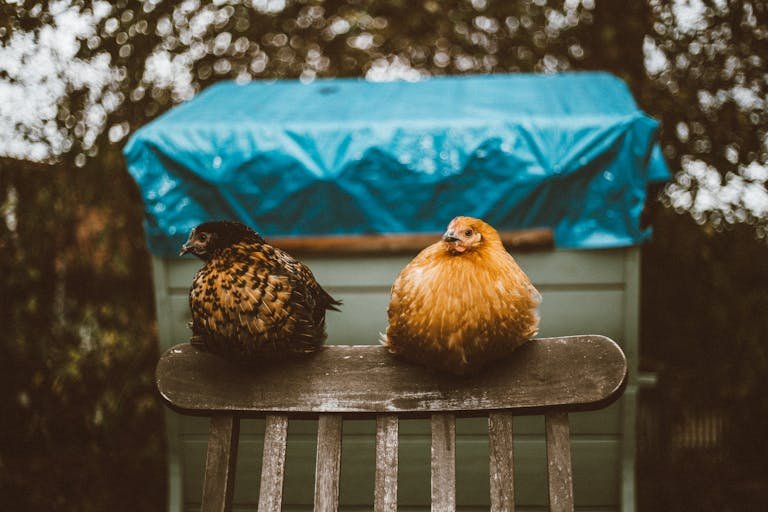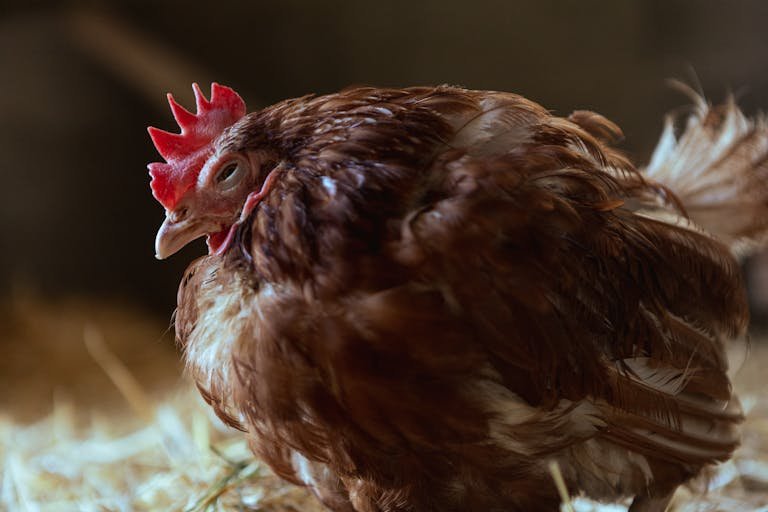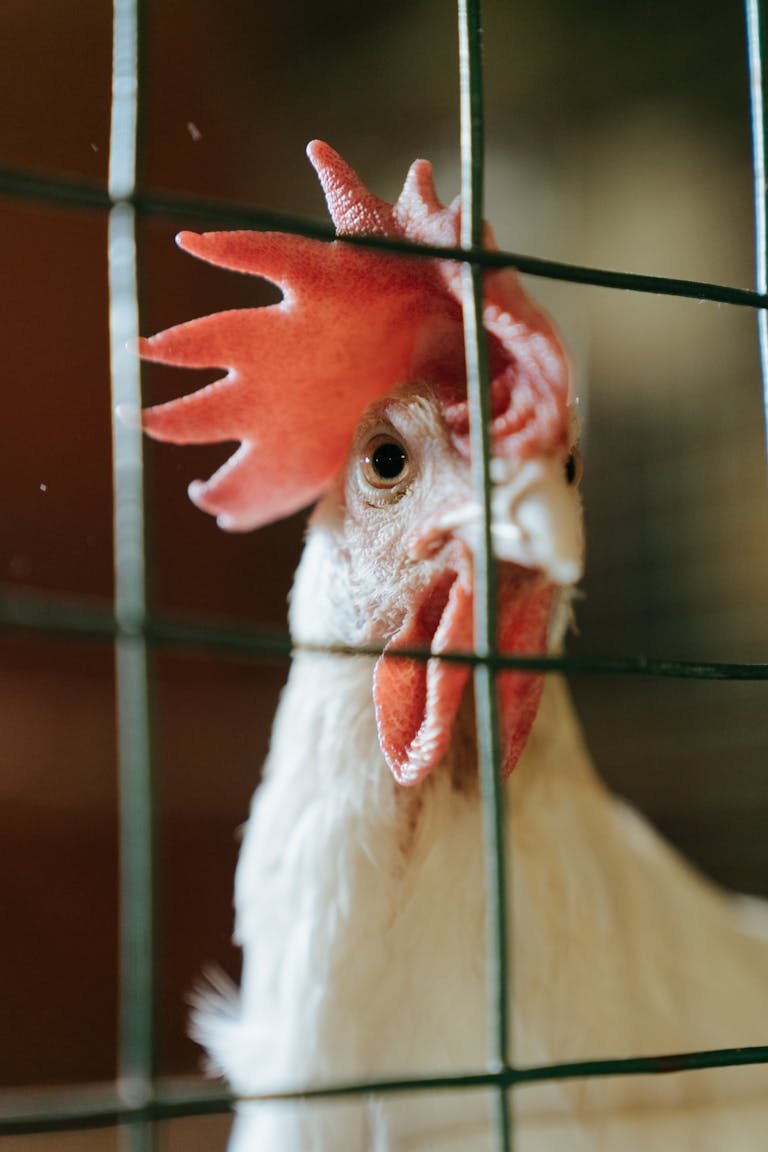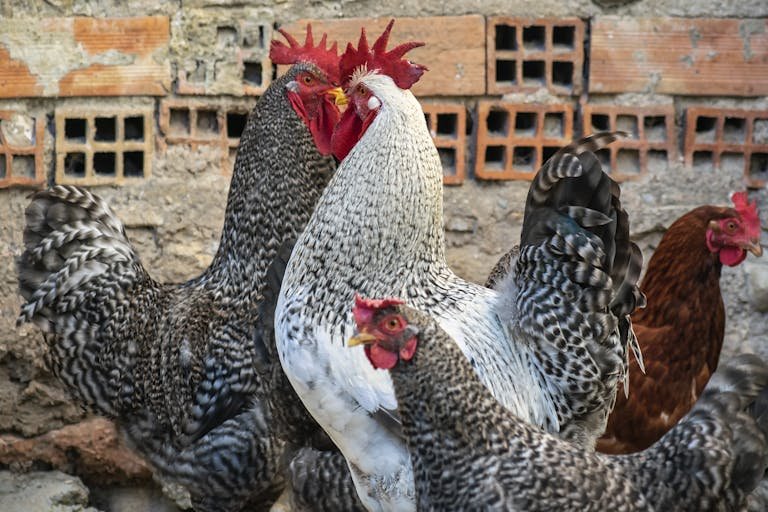How Long Do Chickens Sleep: A Surprising Fact

Chickens, like all living creatures, need adequate sleep to maintain their health and well-being. While they don’t follow the same deep sleep patterns as mammals, their sleep is an important part of their daily cycle. If you’re raising chickens or thinking about it, understanding their sleep behavior will help ensure they thrive.
In this blog, I’ll guide you through everything you need to know about ” How Long Do Chickens Sleep ” the factors that influence their rest, and how you can help them sleep better.
Average Sleep Duration
Nightly Sleep
Chickens typically aim for around 8 hours of sleep per night. This duration is similar to the sleep needs of many humans. Chickens are diurnal creatures, which means they are active during the day and sleep at night. Their internal clocks are closely tied to the natural daylight cycle. When the sun sets, chickens instinctively begin to settle down for the night.
During this nightly sleep, chickens will go through different stages, though they do not experience REM sleep in the same way that mammals do. Instead, their sleep consists of lighter stages that allow them to remain alert to potential threats. They are sensitive to light and sound, which helps them remain aware of their surroundings even while resting.
Daytime Naps
In addition to their nightly sleep, chickens may take short naps during the day. These naps help them conserve energy and stay alert for potential threats. Chickens will often rest intermittently throughout the day, especially during warmer weather when they might feel the need to cool down. These naps are typically brief, lasting anywhere from a few minutes to half an hour.
Chickens often take naps during the heat of the day when they are less active. During these times, you may observe them standing with their eyes closed, occasionally shifting positions. These short periods of rest are vital for maintaining their energy levels throughout the day.
Factors Affecting Chickens’ Sleep Patterns
1. Seasonal Changes
The length of daylight and the temperature can significantly impact a chicken’s sleep cycle. In winter, when the days are shorter and colder, chickens tend to sleep longer due to the extended periods of darkness. Their activity levels also decrease in the cold, leading them to seek warmth and rest more frequently. In contrast, during the summer, when the days are longer, chickens may stay active for extended periods and take more frequent naps during the day to conserve energy.

2. Lighting
Artificial lighting in a coop can disrupt a chicken’s natural sleep-wake cycle. Chickens are sensitive to light, and too much artificial lighting during the night can confuse their circadian rhythm, leading to sleep deprivation. It’s best to keep their sleeping area dark at night. Avoid leaving artificial lights on in their coop for prolonged periods, especially during their resting hours, as this can interfere with their ability to get restful sleep.
If you want to use artificial lighting to extend egg production during the winter months, it’s important to use it wisely. Chickens need at least 6 to 8 hours of complete darkness every night to function properly.
3. Safety and Stress
Feeling unsafe can prevent chickens from sleeping well. Chickens are naturally prey animals, and if they sense danger, they will stay alert rather than sleep. Predators like foxes, raccoons, or even unfamiliar sounds can cause your chickens to stay awake or sleep fitfully. Ensuring that your chickens have a secure coop will help them feel safe and allow them to get the rest they need. A predator-proof coop, complete with strong locks, solid walls, and no gaps, will provide the sense of security necessary for good sleep.
4. Temperature
Extreme temperatures can also affect a chicken’s sleep. Chickens prefer moderate temperatures for sleeping, around 65°F to 75°F (18°C to 24°C). If it’s too hot or too cold, they might have trouble sleeping. In the winter, providing proper bedding, insulation, and even heating lamps in extreme conditions can ensure your chickens remain warm and sleep comfortably. In hot weather, make sure there is proper ventilation and access to shade during the day so they can rest without overheating.
5. Noise Levels
Chickens prefer a quiet environment to sleep in. Loud noises, such as nearby traffic, barking dogs, or construction, can disrupt their sleep. Minimizing noise disturbances will help your chickens settle in for the night and sleep better. If you live in a noisy area, consider soundproofing your coop to reduce external sounds.
Signs of Sleep Deprivation
If a chicken is not getting enough sleep, they may exhibit signs of sleep deprivation, such as lethargy, decreased egg production, or aggression. Sleep-deprived chickens may also become more susceptible to illness due to a weakened immune system.
Common signs that your chickens may not be getting enough rest include:
- Lethargy: Chickens that are overly tired may be less active and reluctant to forage or interact with others.
- Decreased Egg Production: Stress from lack of sleep can lead to lower egg output. If you notice a sudden drop in egg production, it could be a sign that your chickens are not resting properly.
- Aggression: Sleep-deprived chickens may become irritable and more prone to pecking or fighting with others in the flock.
If you observe these signs in your flock, it’s essential to assess their sleeping conditions and overall environment.
Tips for Promoting Healthy Sleep in Chickens
To help your chickens achieve a restful night’s sleep, consider the following tips:
1. Provide a Secure Coop
Ensure that your chicken coop is secure and free from potential predators. A solid structure with secure locks will help your chickens feel safe and allow them to sleep soundly.
2. Maintain Proper Ventilation
A well-ventilated coop will help keep the air fresh and comfortable. Good airflow is essential for maintaining a suitable environment for your chickens, especially during hot weather. Ensure that your coop has windows or vents that can be opened during the day and closed at night to keep it dark.
3. Control Lighting Conditions
To promote healthy sleep patterns, limit artificial light exposure at night. Turn off lights in the coop to create a dark environment that encourages your chickens to rest. If you use artificial light to extend daylight hours for egg production, consider gradually increasing light exposure rather than abruptly changing their environment.
4. Ensure Comfortable Roosting Spaces
Provide adequate roosting space in your coop to accommodate your flock. Chickens need enough room to spread out while roosting, and they prefer to be off the ground. Use sturdy, rounded roost bars or natural tree branches to give them comfortable perches.
5. Observe Your Flock
Regularly observe your flock to ensure they are comfortable and healthy. If you notice any signs of distress or sleep deprivation, take action to identify and resolve potential issues.
6. Provide Enrichment
Keeping your chickens entertained during the day can help reduce stress and promote better sleep at night. Offer enrichment activities, such as foraging opportunities, dust baths, and toys, to keep your chickens engaged and happy.
7. Monitor Health and Nutrition
Proper nutrition plays a vital role in your chickens’ overall health. Ensure they have access to a balanced diet, fresh water, and any necessary supplements. Healthy chickens are more likely to sleep well and exhibit good behavior.
Read Also: Chicken Sleep Secrets? They Don’t Dream in Beds!
Final Words
Understanding how long chickens sleep and the factors influencing their sleep patterns is essential for any chicken owner. By providing a safe, comfortable environment and addressing the factors that can disrupt their rest, you can help ensure your chickens are healthy and productive.
As you implement the tips mentioned above, keep in mind that a well-rested flock is more likely to be happy, active, and consistent in egg production.




